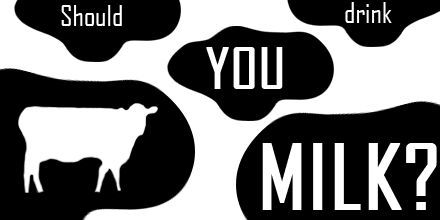We must have probably heard and seen numerous marketing materials and programs that promote the importance, necessity and the benefits of the everyday milk use and rest of the dairy products regular intake. Due to the size and financial power of major corporations in its manufacture, and huge impact of the dairy industry ,this wrong notion is instilled into our minds and we have created false belief.
Due to the size and financial power of major corporations in its manufacture, and huge impact of the dairy industry ,this wrong notion is instilled into our minds and we have created false belief.
Contrary to what they claim the diary products cow milk especially has no health, no growth and development, no
‘strong bones‘ qualities and the like advertising often connects to it. Milk related diseases come through multiple reasons.
We need to realize the truth that for years has been hidden from us, where incorruptible experts and nutritionists were trying to present to the public : Milk and dairy products are not only essential in the diet of children and adults (except in the infantile period , and primarily breast milk or possibly its replacement, free from cow’s milk ), but are more dangerous to use than any other products.
Milk Related Diseases
To meet increased demand of milk supply, adulteration is being done in most unnatural way.
All the left over food from restaurants are fed to cows in the morning along with chemicals injected to increase milk production.
All these poisons are now part of milk that we consume.
Apart from these, artificial or synthetic milk produced is the most dangerous one.
It is very difficult to recognize and seperate synthetic milk from real one.
Milk Related Diseases that are in some way associated with the use of cow’s milk and other dairy products are the following :
- Lactose intolerance (milk sugar ) because of the lack of the enzyme lactase (even thought the peoples of Europe are much less sick than the other nations of the world) . Symptoms of lactose intolerance can manifest as bloating and increased ‘gas’ pains and stomach cramps , watery diarrhea , nausea and ‘crackling’ pain
- Increased tendency to arteriosclerosis and its consequences – cardiovascular and cerebrovascular disease
- Increased risk for certain types of cancer – particularly prostate cancer , ovarian cancer, rectum and breast cancers.
- Neurological disease, such as amyotrophic lateral sclerosis, it is believed that they could be associated with the use of milk
- Allergic reactions not only to milk proteins , but also on the possible contamination of milk within
- Infectious disease caused by various species of bacteria (Salmonella , Yersinia , Campylobacter , Listeria ) and viruses, and other microorganisms that milk and dairy products are affected with
- ‘Mad cow disease’ – bovine spongiform encephalopathy
- Resistance to antibiotics for frequent exposure to antibiotics in cow’s milk
- The influence of hormones , deposited pesticides and other pollution from intake of the milk
- Osteoporosis
- A possible association of various types of leukemia, with cow’s leukemia virus
- Endometriosis
Plant Food replacements for Milk to meet Calcium, Iron and Protein need
There is no reason that would require the use of cow’s milk and dairy products in human nutrition.
Even animals stop drinking milk once they cross the infant stage, but humans continue milk consumption in some or the other form like coffee, tea etc.
In contrast, omitting these foods from your diet will be beneficial influences to your health and prevention to serious health problems and disease.
A perfect Vegetarian diet is the one which does not have any milk product (Not consuming eggs or meat but having animal milk is not vegetarianism)
Following list of foods should be consumed instead:
Calcium in plants (mg u 100g)* For comparison : 100 ml of cow’s milk has less than 110 mg of calcium
Dried | 1467 | Walnuts | 129 |
Poppy | 1460 | Spinach | 126 |
Sesame | 783 | Sunflower | 116 |
Dry | 765 | Chickpeas | 110 |
Dried | 645 | Horseradish | 105 |
Dog | 310 | Marinated | 96 |
Carob | 279 | Dried | 82 |
Soybeans | 270 | Dry | 79 |
Cashew | 267 | Dry | 74 |
Dried | 257 | Dry | 69 |
Fresh | 257 | Kohlrabi | 68 |
Almonds | 252 | Celery | 68 |
Parsley | 245 | Lettuce | 65 |
Pinoli/Pine | 233 | Leek | 65 |
Chestnut | 226 | Rye | 64 |
SOJA | 225 | Dates | 63 |
Kale | 212 | Cherries | 63 |
Green | 197 | Peanuts | 59 |
Garlic | 181 | YellowDry | 59 |
Fresh | 161 | Green | 57 |
Pistaccio | 138 | Endive | 54 |
Pumpkin | 135 | Figs | 54 |
Dried | 135 | Oatmeal | 54 |
Spicy | 134 | Parsnip | 51 |
Fresh | 134 |
